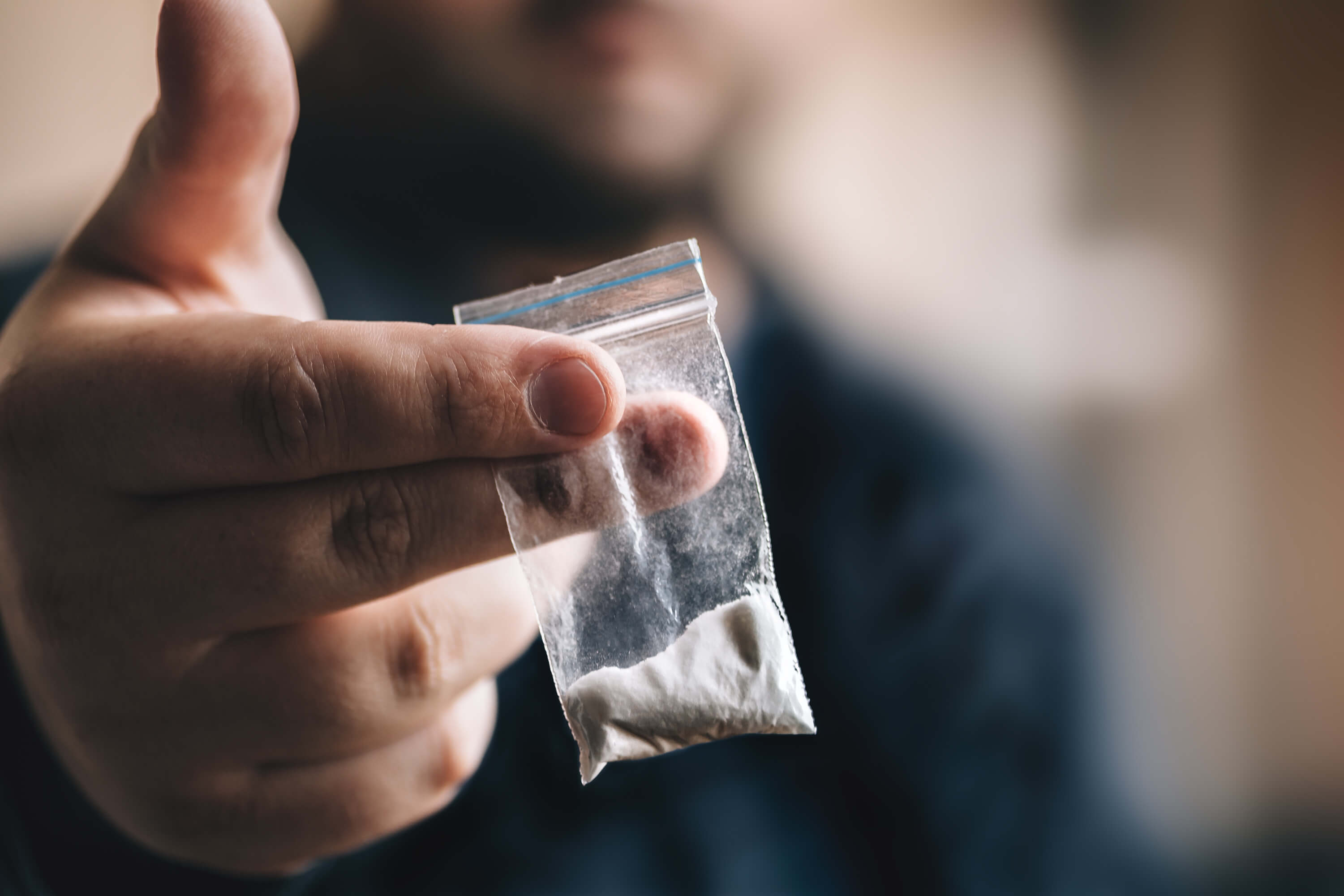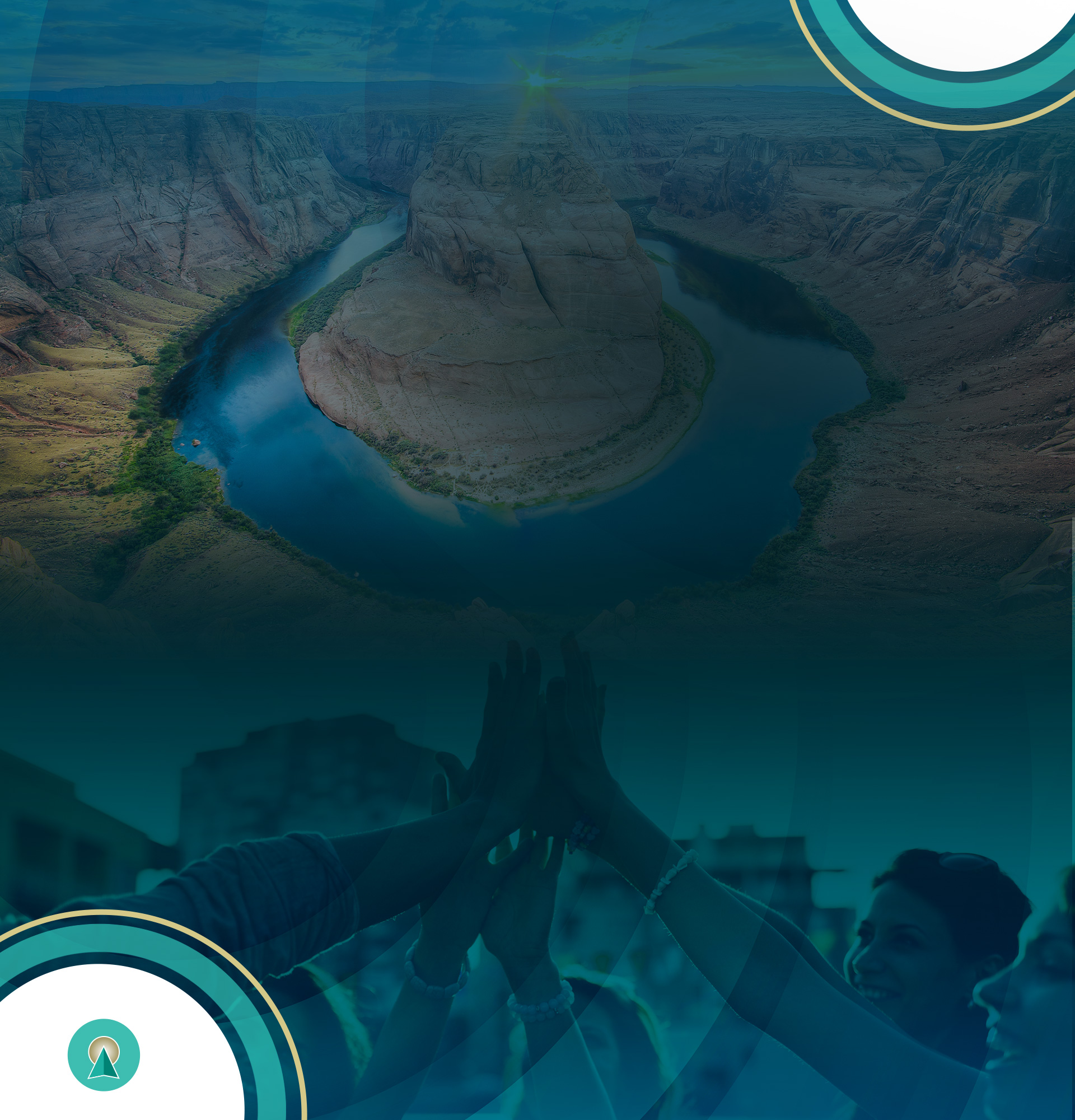

Working To Make Your Recovery Affordable By Accepting Most Insurances
Do not be discouraged if you are not seeing your insurance provider listed on our website. We take many types of insurance! Call Today: (844) 292-5010
-
 In-Network: BCBS
In-Network: BCBS -
 In-Network: Aetna
In-Network: Aetna -
 In-Network: Tricare
In-Network: Tricare -
 In-Network: Cigna
In-Network: Cigna -
 Proudly Caring for Veterans
Proudly Caring for Veterans -
 In-Network: Carelon
In-Network: Carelon -
 In-Network: MultiPlan
In-Network: MultiPlan -
 In-Network: HMC
In-Network: HMC
Cocaine Addiction Treatment in Prescott, AZ
Successfully Overcome Your Cocaine Addiction at Our Arizona Inpatient Rehabilitation Facility
Cocaine—also known as “coke,” “blow,” or “yayo”—is highly addictive and powerful stimulant made from the coca plant that is indigenous in South America. The drug has been portrayed in movies and television shows as a high-class substance used by celebrities and the wealthy. Although cocaine produces feelings of euphoria, increased energy, and talkativeness, continuous use can not only lead to addiction but also accidental overdose and death.
Have you found yourself struggling with an addiction to cocaine and similar substances? There is no shame in admitting you have a serious problem with cocaine addiction. At Decision Point Center, we provide comprehensive, around-the-clock care to work through your addiction and get your life back on the right path.
On This Page:
- Cocaine Addiction Treatment Programs We Offer
- Dangers of Cocaine Use
- How to Help a Loved One Addicted to Cocaine
- Signs & Symptoms of Cocaine Abuse
- Call Today to Learn More About Our Cocaine Treatment Plans
- What Does Cocaine Rehab Involve?
Need cocaine addiction treatment in Arizona? Call (844) 292-5010 to explore your options on how to regain control of your life and your health.
Decision Point Center is here to help guide you down the path of recovery and sobriety. We offer compassionate cocaine rehabilitation treatments that prioritize your wellbeing. By delivering customized treatment options, we can ensure efficiency in our programs. Cookie-cutter solutions simply do not work well, so you will never find us pre-manufacturing your treatments and therapies.

Some treatment options that may benefit you include:
- Extended residential treatment
- Residential inpatient program
- Cognitive behavioral therapy (CBT)
- Family therapy
- Relapse prevention program
- Trauma therapy
- Career and educational counseling
Our professional team can help you work through initial withdrawal or overdose symptoms, understand how your addiction began, address mental health conditions that are associated with your addiction, and provide coping strategies necessary for continued recovery outside our center. A healthy, carefree life after cocaine addiction can be yours with our Prescott rehab center’s guidance.
Cocaine is known internationally as one of the most dangerous narcotics. The substance causes instantaneous and dramatic changes in the user’s mind and body. Some people with a sensitivity to cocaine may experience immediate side effects after one dose that require hospitalization. Others who become addicted to cocaine slowly and often unknowingly cause gradual damage to their entire bodies.
Cocaine use can lead to:
- Respiratory problems: Like any other type of smoking, smoking crack cocaine can increase a person's risk of developing a wide range of respiratory issues, including asthma, pneumonia, and even certain types of lung cancer.
- Internal organ damage: Snorting and ingesting cocaine can wreak havoc on a person's internal organs, including bowel decay, deterioration of nasal passages, liver failure, kidney failure, irregular heartbeat, heart attacks, and the shrinking of grey matter in the brain.
- Psychological impairment: Cocaine use can lead to intense anxiety, paranoia, restlessness, and irritability. In some cases, cocaine users can experience hallucinations. Memory loss is also common.
- Malnourishment: Cocaine can act as an appetite suppressant, causing users to eat less than their body needs to stay healthy. As a result, it is not uncommon for cocaine users to experience considerable weight loss.
- Blood diseases: Users who inject cocaine intravenously put themselves at risk of contracting various blood borne illnesses if the needles used are not properly sterilized or shared with other people. This may include HIV, hepatitis C, and other serious infections.
- Sexually-transmitted diseases: Cocaine lowers a person's inhibitions and alter's judgment, making them more prone to engaging in risky sexual behavior.
- Overdose: As a person develops a tolerance to cocaine with use, they require increasingly larger doses to achieve the same high as they once did. This can quickly increase their risk of a potentially-fatal overdose.
Long-Term Effects
Here are some of the long-term effects of cocaine addiction:
- Cardiovascular problems: Cocaine can damage the heart and blood vessels, leading to heart attacks, strokes, and other cardiovascular problems.
- Neurological problems: Cocaine can damage the brain, leading to seizures, headaches, and movement disorders. It can also increase the risk of stroke.
- Social and financial problems: Cocaine addiction can lead to job loss, relationship problems, and financial difficulties. It can also increase the risk of criminal activity.
The severity of these long-term effects can vary depending on the amount of cocaine used, the frequency of use, and the individual's overall health. If you are concerned about the long-term effects of cocaine addiction, it is important to talk to a doctor or other healthcare professional.
It is so important that you address your cocaine habit as soon as possible. What might only seem like a hobby can actually be a deadly addiction before you know it . Our cocaine rehabilitation professionals at Decision Point Center are standing by to assist you. We offer moral support and careful medical care to give you the strength to break away from cocaine addiction.
Signs of a Cocaine Overdose
Recognizing the signs of a cocaine overdose is crucial and can save a life. Symptoms may include:
- Chest pain
- Rapid or irregular heartbeat
- Seizures
- Increased body temperature
- Agitation or paranoia
- Hallucinations
- Stroke
- Cardiac arrest
If you suspect someone is experiencing a cocaine overdose, call 911 immediately.
Personalized Treatment Plans
At Decision Point Center, we understand that every individual struggling with substance abuse has unique needs and challenges. That's why we offer personalized treatment plans tailored to each client's specific circumstances and goals. Our team of experienced professionals works closely with each individual to create a comprehensive and effective plan for recovery.
Benefits of our personalized treatment plans include:
- Individualized care and attention
- Targeted interventions for specific issues
- Holistic approach to healing mind, body, and spirit
- Flexible treatment options to accommodate different schedules and preferences
- Continued support and guidance throughout the recovery process
If you or a loved one is struggling with substance abuse, contact our Arizona addiction rehab experts at (844) 292-5010 to learn more about how our personalized treatment plans can help you achieve lasting sobriety.
Understanding Substance Abuse in Prescott, Arizona
In Prescott, Arizona, the challenges of substance abuse, particularly cocaine addiction, are felt deeply within our community. Local resources, such as the City of Prescott and the Yavapai County Health Department, are dedicated to addressing these issues and providing support to those in need. However, navigating the complexities of addiction can be overwhelming, and many individuals may feel isolated in their struggles.
We recognize that the journey to recovery is not just about overcoming addiction; it’s about addressing the root causes and finding sustainable solutions. Our personalized treatment plans are designed to meet the specific needs of Prescott residents, ensuring that you receive the care and attention necessary for lasting recovery. Whether you are dealing with withdrawal symptoms or the psychological impacts of addiction, we are here to guide you every step of the way.
By collaborating with local entities and utilizing community resources, we aim to create a supportive environment that fosters healing and growth. If you or a loved one is struggling with cocaine addiction in Prescott, reach out to us today. Together, we can work towards a healthier, more fulfilling life.
There are few things more painful than witnessing someone you care about struggle with cocaine addiction. While it may be uncomfortable, it is crucial that you speak up and urge them to seek treatment. You could be saving their life.
If your son, daughter, parent, friend, or other loved one is addicted to cocaine, follow these steps:
- Do your research ahead of time and learn as much as you can about cocaine addiction so you can better understand their struggles and empathize with them.
- Do not delay. Do not wait for them to hit "rock bottom" before urging them to seek treatment. The sooner their addiction is treated, the better.
- Approach them from a place of compassion and avoid being judgmental in your words and tone. Shaming them for their struggles could have an adverse effect and make them more resistant to seeking help.
- Be prepared for the possibility that they may react negatively. They may not realize the extent of their addiction, or they may outright deny they have a problem.
- If they seek help, stay involved during their treatment. Be the support system they need when they need it most.
- If your loved one refuses to acknowledge an obvious problem, consider staging an intervention with the help of a trained professional.
Cocaine abuse is not always easy to spot. A person struggling with cocaine addiction may hide their drug use or deny the existence of a problem, making it crucial for those close to them to keep a watchful eye for certain key signs and symptoms. These behavioral and physical symptoms will vary depending on the severity and length of addiction, as well as the method of consumption (snorting, smoking, injecting, or orally ingesting).
Common signs of cocaine abuse include:
- Intense periods of excitement, followed by intense lows
- Unexplained paranoia or mistrust
- Sensitivity to light or sound
- Restlessness and concentration problems
- Dilated pupils
- Elevated blood pressure and body temperature
- Muscle spasms and twitching
- Reduced appetite
- Sudden, unexplained money problems
- Decreased performance at work or school
If a person has been snorting cocaine, they may exhibit the following symptoms:
- Diminished sense of smell
- Frequent nosebleeds
- Constant runny nose
- Difficulty swallowing
Smoking cocaine can be identified by the following signs and symptoms:
- Persistent coughing or asthma attacks
- Frequent respiratory infections
- Smoking paraphernalia such as glass pipes, broken light bulbs, aluminum cans, and straws and tin foil
- Blisters and burns on the lips and fingers
A person who injects cocaine may exhibit these symptoms:
- Small needle marks on the arms
- Damaged or collapsed veins
Finally, orally ingesting cocaine can be identified by these signs:
- Rawness of the gums
- Difficult bowel movements
- Severe bowel gangrene
Contact us today for information about our Arizona cocaine addiction rehab plans.
No matter how bad it may seem for you or your loved one, it is never too late to turn things around. You still have so much life to live and you can mend relationships broken because of your addiction. Having been providing patients with effective drug addiction treatments since 2004, Decision Point Center can provide you with the structure required to get sober and stay that way.
Cocaine treatment considerations during all stages and varieties of cocaine addiction recovery will vary depending on the severity of the addiction, the frequency of use, the quantity and purity of cocaine used, and whether the drug was used in combination with other substances. Cocaine rehab at our Arizona treatment center involves a bio-psycho-social approach employing evidence-based methodologies, psychology, holistic and experiential therapies, and preparation to re-enter the world clean and sober.
Cocaine Addiction Rates and Statistics
According to a 2020 survey by the National Institute on Drug Abuse, 16.8% of adults ages 26 and older and 4.1% of 12th graders report having used cocaine at least once in their lives. Cocaine-related deaths are also on the rise, with more than 16,000 people dying from cocaine use in 2019 alone. Adults ages 18 to 25 consume more cocaine than any other age group, with 5.8% of people in this group reporting having used cocaine in the past year.

Real Clients. Real Recoveries.
-
“Thank you for helping me navigate through one of the most difficult times in my life. I really attribute my experience while in your care to saving my life and career.”- Phil O.
-
“Doug and Wade really helped me and my loved ones through a tough time.”- J.C.
-
“Steve in admissions was extremely helpful for our family as we tried to choose a program recently.”- Paula A.
-
“Decision Point was different from the beginning. A team approach from professionals who care.”- Candace
-
“Thank you for helping me be a better person. Doug and Wade really helped me and my loved ones through a tough time.”- JD
-
“The moment I was in their hands, my transformation began. They actually cared. They actually WANTED to help me. I wasn't just another paycheck to them. They asked questions. They made a plan for me. And they followed it to the T.”- Amber B.
-
“THIS MAN MOVED MOUNTAINS to literally help save her!”- Corin C.
-
This facility deserves a special recognition. They have been around for years but the services they provide and the recovery that comes out of their facility, only seem to grow over the years. I have worked with Stephen from the admissions department and he has always gone above and beyond to make sure clients feel comfortable and get the care they need. I definitely recommend Decision Point Center!!!!- Ashley B.

We Understand You May Have Questions
Let Us Provide You With Answer
-
What If The 12 Steps Aren't My Cup of Tea?No problem. The 12 Steps is just one of many tools available to us at Decision Point and we firmly believe in finding the tools that best suit the individual. We’ll expose you to the 12 Steps of A.A. the way they were meant to be presented, but we’ll also introduce you to solid therapeutic alternatives if you desire.
-
Can I Afford Treatment?Thanks to insurance plans and financing options, more people than ever before are able to receive the treatment they need. When you call our Admissions Team, they will leave no stone unturned in finding ways for you to obtain treatment including setting up a payment plan that meets your needs. You can even verify your insurance coverage here.
-
Do You Offer Wilderness Therapy And How Does It Work?While we do not offer Wilderness Therapy, we do offer outdoor and recreational therapy incorporating hiking, and backpacking to challenge individuals to become the confident person they know they can be. This helps with identifying internal behavior patterns, beliefs, emotions, and core issues, while providing opportunities for learning in the areas of leadership, communication, and problem-solving skills.
-
Do you treat mental health?
At Decision Point Center, we are an accredited dual diagnosis treatment center. This means that we look at the underlining mental health issue that might be causing drug or alcohol addiction.



Meet Our Dedicated Team
-
 Mary Ann Zuppardo Executive Director
Mary Ann Zuppardo Executive Director -
 Dr. Terry Vaughan Medical Director, Psychiatrist
Dr. Terry Vaughan Medical Director, Psychiatrist -
 Stephen Leza Director of Admissions & Business Development
Stephen Leza Director of Admissions & Business Development -
 Lindy Howard, MA, LPC Clinical Director
Lindy Howard, MA, LPC Clinical Director -
 Luke Bailey Director of Compliance
Luke Bailey Director of Compliance -
 Deborah Pallett, P.A. Physician Assistant
Deborah Pallett, P.A. Physician Assistant -
 Dr. Julia L. Summers, LPC DBT Therapist
Dr. Julia L. Summers, LPC DBT Therapist -
 Douglas Winter MS, LISAC, CSAT Primary Therapist
Douglas Winter MS, LISAC, CSAT Primary Therapist -
 Mark Branson, MA, LPC, NCC Trauma Therapist
Mark Branson, MA, LPC, NCC Trauma Therapist -
 Troy Trout Outdoor Activity Coordinator
Troy Trout Outdoor Activity Coordinator





















